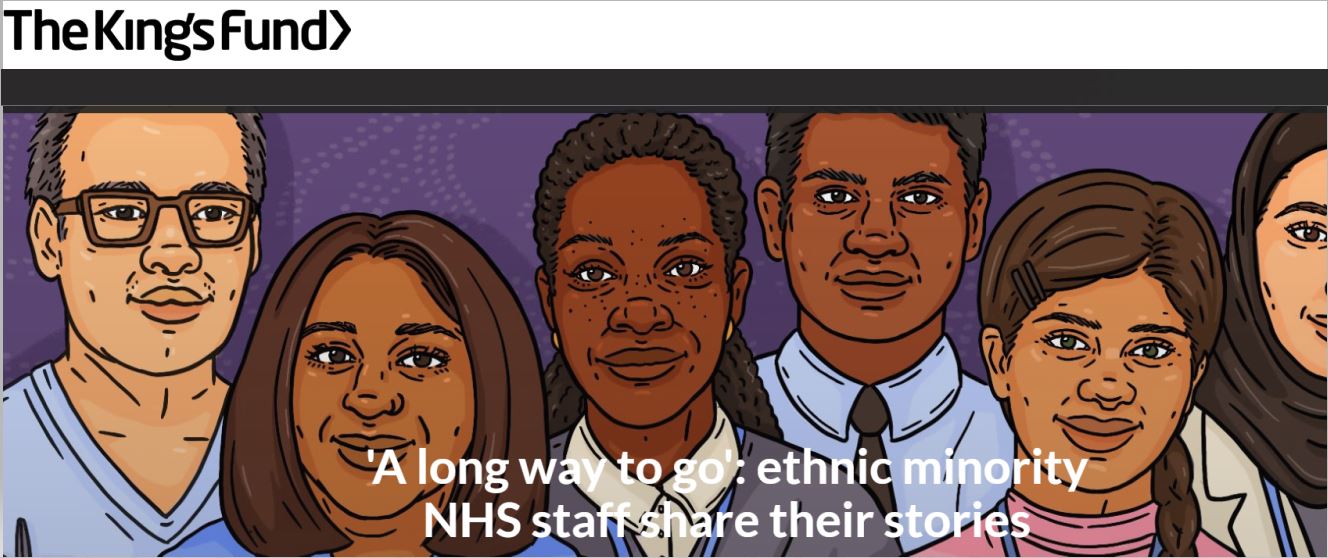Defining racism
Racism is defined as the belief that race is a fundamental element of an individual and that racial differences produce an inherent superiority or inferiority. In a healthcare system this can be translated in various ways and this blog will attempt to delve into some of these aspects.
Racism by patients
A study conducted in Germany focusing on discrimination experienced by minority professionals in two institutions found that racism often had roots in anti-migrant and anti-integration ideas and was often directed against individuals who had come to Germany as migrants or refugees, or were perceived as such, and the latter proved this extended to more of a general racial bias as well (2). Interestingly, the study found that professionals often felt discriminated against by patients and their peers as opposed to their superiors. This came in the form of patients openly displaying racist behaviours or refusing to receive care by international or Black nurses. Colleagues would undermine the work of their international peers and draw unfair conclusions about their morale, motivations or character.
Such behaviours were also reported in a separate study looking at the experiences of Black African nurses working in the NHS (3). Herein the nurses often felt ignored by patients and their families which led them to feel regarded as incompetent. As was with the German study above, this study found that these nurses were discriminated against by their colleagues, and in contrast, their superiors. This came in the form of being prohibited from doing certain tasks due to a lack of trust placed in them. It is possible that this sentiment comes from a place of general distrust of anything which is “other” and extends to individuals who may come from or have been trained in “other” places.
Structural inequalities
Some managers were even reported to not discuss professional development plans with Black African nurses (3). This has some very real-life consequences for such individuals beyond just workspace bullying. In the US, Black female staff are reported to be ‘over-represented in the health-care workforce’ according to one study, but they are heavily concentrated in low wage jobs in the long-term care sector (3). There is also an appalling pay gap apparent in the NHS. In May 2020, Black male staff were paid £0.84 for every £1.00 paid to their White counterparts, while Black female staff were paid £0.93 for every £1.00 paid to White counterparts (4).
Bullying
Bullying can also present itself as colleagues ignoring issues pertaining to their minority peers. During the COVID pandemic, also labelled egregiously as the “China virus”, anti-Asian sentiments soared across North America, as well as in healthcare. This translated into violent hate crimes and targeted attacks against people who were of East Asian descent. However, there was a marked under-reporting and little investigation into the discrimination and harassment faced by Asian healthcare workers (4). In fact, colleagues would not refer patients to their Asian peers and would disapprove if there were “too many Asian healthcare workers within a single department”.
Microaggressions
Agimal (2020) a Physiotherapist similarly talks about Racism experienced by Occupational Health professionals (5):
A person does not have to intend malice to do or say something that can be considered racist for example, asking somebody where they are from but not accepting “Birmingham” as an answer, because of my brown skin colour, people assume that I must be from India. Racism can be found in subtle comments and preconceptions such as assuming that English isn’t my first language, or that I wasn’t born in England, or that I must have been on the cricket team. Other examples in the workplace can include things such as confusing the only two minority members of staff, not trying to pronounce non-English names, or by giving “Christian” nicknames to staff.
Addressing racism
Consultant Obstetrics and Gynaecology Dr Gloria O Esegbona wrote a cry for help call in heart-wrenching letter to the Royal College of Obstetricians and Gynaecologists on the need to address the deep-rootedness of discrimination against race in our healthcare system:
“As Black Doctors we are right at the bottom of the totem pole when it comes to the opportunities to do research, subspeciality training, become consultants and attain positions of leadership”.
A long way to go
It is clear by reading these accounts that there is “a long way to go” as identified by The Kings Fund where NHS staff share their stories of experiencing racism and discrimination.

'A long way to go': ethnic minority NHS staff share their stories (kingsfund.org.uk)
More work is needed to continue to identify and address racism….
Race Equality Review
At CSGUL, there a Race Equality Review that took place in 2020 undertaking an institution-wide review of race equality, reviewing the work in place already and identifying recommendations for action to address racial inequalities across the organisation. This included the setting up of Race Equality Action and Engagement Group (REAEG).
Speak up
City St George's aims to enable all students to fulfil their personal potential and does not tolerate bullying and harassment of any kind. City St George's fully supports students raising concerns and we are committed to investigating allegations: Report a case of bullying or harassment.
Maryam Saad
- Agimal H S, Stamping Out Racism (2020) Bestpracticesinoh accommodating autism - pam physio solutions. Available at: https://www.pamphysiosolutions.co.uk/media/jg1fb1e0/stamping-out-racism_oh-today-autumn-2020.pdf (Accessed: 20 June 2023).
- Can E, Konrad CM, Khan-Gökkaya S, Molwitz I, Nawabi J, Yamamura J, et al. Foreign Healthcare Professionals in Germany: A Questionnaire Survey Evaluating Discrimination Experiences and Equal Treatment at Two Large University Hospitals. Healthcare. 2022 Nov 22;10(12):2339.
- Likupe G. Experiences of African nurses and the perception of their managers in the NHS. Journal of Nursing Management. 2013 Aug 7;23(2):231–41.
- Khan KS. Racial Discrimination against Minority Healthcare Workers in Women’s Health. Women. 2022 Mar 22;2(2):88–92.
- Louie-Poon S, Chiu P, Kung JY. Asian Healthcare Workers and Their Experiences of Racism in North America: A Scoping Review. Canadian Journal of Nursing Research. 2023 Mar 23;084456212311661.